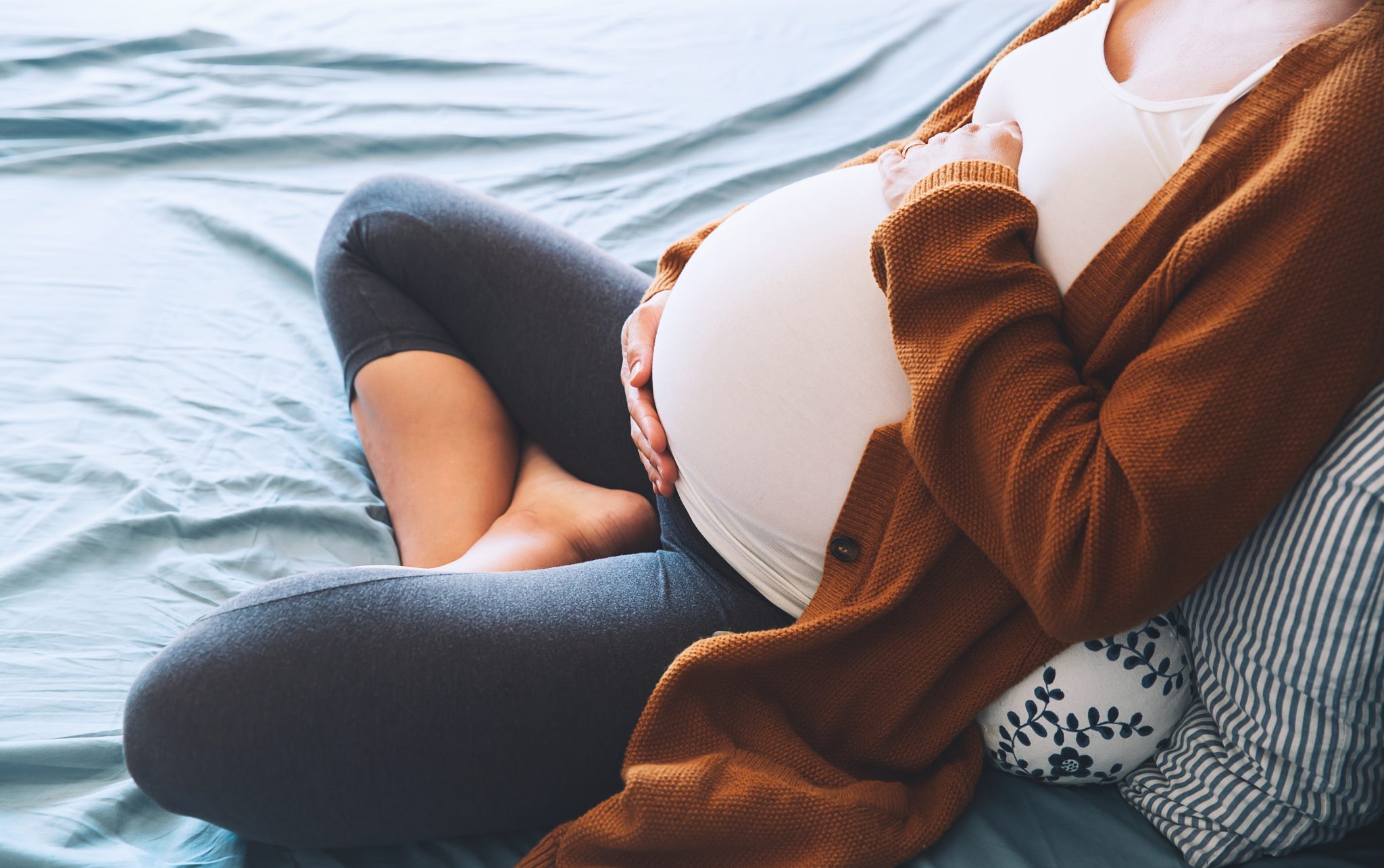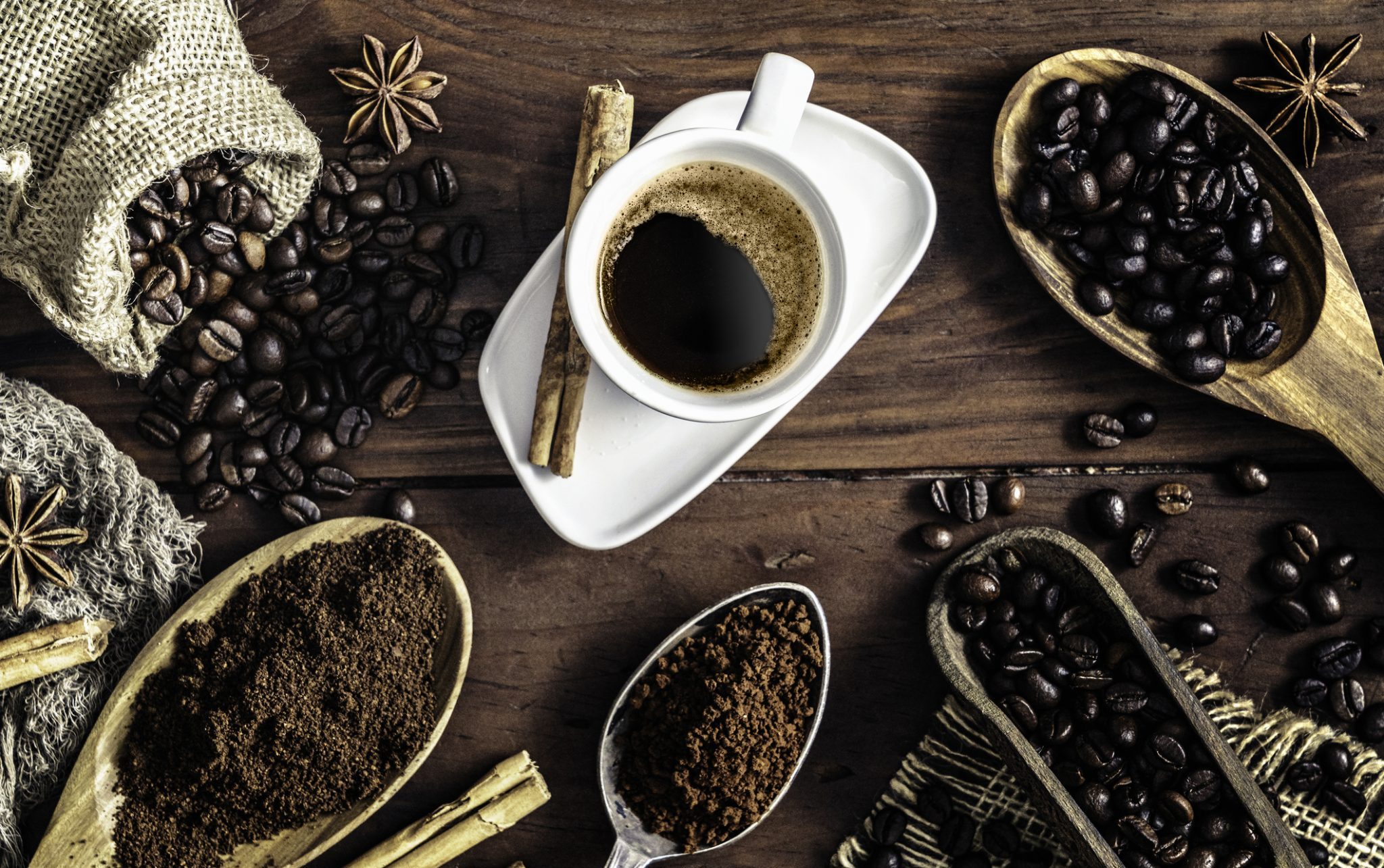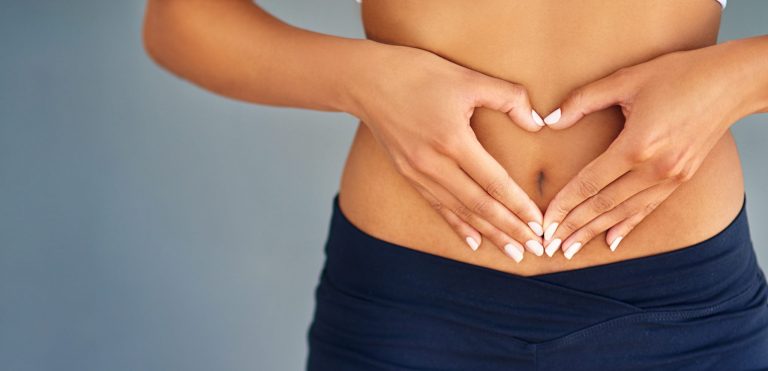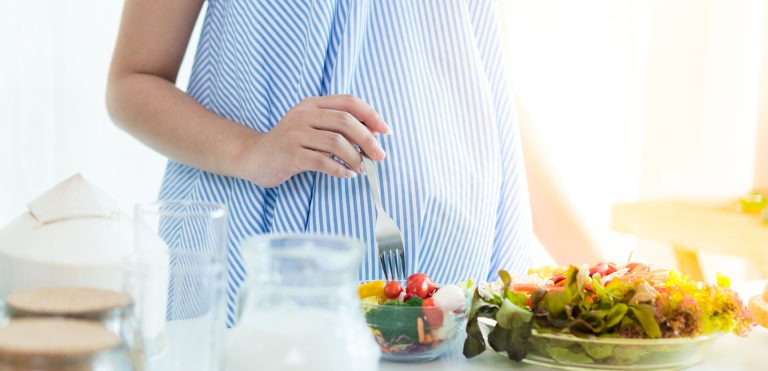I love coffee: the deep smell, the rich taste, the warmth of a hot cup on a cold morning. I can’t imagine a day without my trusty mug and that hot brew. But, go back a few years ago to when I was pregnant with my first, and my coffee habit went out of the window.
It wasn’t planned. I just no longer enjoyed that smell. The taste was repellant too, and so it was bye-bye to my old love for a whole 2 years! Yes, 2 years!
So, the first time around, going coffee-free wasn’t even a discussion. But eventually, I got back on the delicious coffee wagon again and back in my morning habit. Then baby No.2 rolled around. Unlike my first pregnancy, I didn’t experience any aversion to coffee. So, I was left with a dilemma to drink or not to drink? And figuring out, how safe is coffee for pregnant women, anyway?
If you’re a soon-to-be Mama with a love for coffee, here’s what I found out.
Can I drink coffee if I’m pregnant? How much caffeine is safe during pregnancy?
Yes! The good news is you can still have your morning or mid-afternoon cup of the black stuff. Hurrah! That is if the morning sickness isn’t putting you off.
Despite a number of research studies into the issue, none have found a solid connection between moderate caffeine intake and pregnancy outcomes. However, drinking large amounts is still not advised. Significant intake of caffeine is suspected to be linked to growth restrictions, preterm birth, and even lower birth weights.
So, how much coffee is considered safe then?
According to the World Health Organization (WHO), pregnant women can have a caffeine intake of up to 300mg a day. This is considered ok*. But caffeine isn’t just in coffee. Tea, chocolate, soda, and more. So, getting your intake right isn’t as easy as “how many cups of coffee can I drink a day?”
Note. The American College of Obstetricians and Gynecologists (ACOG) suggests a 200mg limit.
Let’s break it down:
Coffee
Instant - 60mg
Home brew - 80mg
Regular cappuccino - 100mg
Long black - up to 200mg
Decaf – between 3mg – 12mg
Tea
Black tea - 40mg
Green tea - 20mg
Decaf tea - 5mg
Herbal tea - 0mg
Soda
Coca Cola - 50mg
Diet cola - 46mg
Coke Zero - 34mg
Mountain Dew - 54mg
Pepsi - 38mg
Other
Dark chocolate 100g - 86mg
What about decaf? Can I drink decaf coffee while pregnant?
Like your regular cup of Joe, the trick with decaffeinated coffee is not to have too much. Drink a lot of it, and you could put yourself way over that 300mg-a-day caffeine limit.
One other thing to be aware of when it comes to decaf is always check the back of the pack. Some brands include methylene chloride, which is a chemical that can be used to decaffeinate coffee.
This solution is known to be harmful to health in larger quantities and has links to cancer. So, to stay safe, if your decaf has this listed on the back, give it a hard miss.
Why should you limit your caffeine intake while pregnant?
While large amounts of coffee consumption during pregnancy has been linked to growth restriction during gestation, preterm births or miscarriages, and lower birth weights, the truth of the matter is, aside from these effects, doctors don’t yet know precisely how caffeine affects your baby.
Now that’s not to say you should go and have all the coffee you like (Hint! It’s a bad idea). Instead, here’s what we do know:
- Coffee is a diuretic – this means you will be more likely to go to the toilet more often. And you could become dehydrated. What you should do is match your coffee with a glass of water to maintain healthy hydration levels.
- It can cause heartburn – that pesky burn in the chest often rears its ugly head during pregnancy, and coffee can make it all the worse. If this is you, best stay away from the dark stuff for a while.
- Linked to anemia – if your iron levels are low or you’ve been diagnosed with prenatal anemia, coffee isn’t for you. Caffeine impacts the absorption of iron and can leave you feeling even more tired.
TTC – Trying to conceive – Can I drink coffee?
If you’re trying for a baby, first of all, congrats, and second, yes, you can drink coffee. But, like when carrying that little one inside you, it’s best to limit your intake.
Sticking to the below 300mg limit is a good step for parents-to-be. It lowers your risk for miscarriage and could improve your chances of a healthy pregnancy. Couple this with those prenatal vitamins, and you’re on your way.
But TTC dads, listen up, this one concerns you too. TTC fathers should also stick to that 300mg limit too to help ensure a healthy pregnancy. But don’t worry, you can drink all the coffee you like once the baby is here (within reason!).
Coffee vs tea – which is safer, and does it make a difference?
Thinking of switching your cup of coffee for another hot beverage, but don’t know if it’s worth it? It is. Generally speaking, tea has naturally lower levels of caffeine than coffee. But that doesn’t mean a free-for-all.
Same as with your cup of Joe, if you switch to tea, you need to monitor how many cups you have a day. Especially if your brew of choice is black.
The silver lining? Some types of tea – fruit, herbal, and decaf – contain very low levels of caffeine so you can enjoy them pretty freely. So, you’ll never be without a warm beverage.
Alternatives to coffee for pregnant women
Don’t despair if you can’t reach for the black stuff, there’s lots of lovely hot beverages out there that will delight your taste buds.
- Chicory – if you’re looking for a coffee-tasting (kind of) alternative that is almost caffeine-free (38mg), chicory is the way to go.
- Herbal tea – ginger tea especially can be useful for managing the symptoms of morning sickness while staying hydrated. But avoid guarana, duck roots, juniper berries, buckthorn, fennel, lovage, motherwort, borage, and sassafras, among others. These aren’t the best for pregnant women.
- Green tea – going green is the way to go. Sure, it has some caffeine, but it also has lots of health benefits too. So, brew up a cup if you need that warm fix.
- Hot chocolate – another not 100% caffeine-free, but with much less than coffee, hot chocolate is a good alternative.
- Chai latte – if you’re a lover of deep flavors, a warm chai latte could be for you. But when choosing your brew, aim for those without black tea to reduce caffeine intake.
Let’s go have a brew!
Whether your TTC, an FTM (first time Mom), STM (second time Mom), or breastfeeding, the choice on whether or not to have that cup of coffee in the morning is yours. If you can do without – great! There are lots of options out there for that warm morning brew. If not, don't let Mom-guilt take over for having one cup. Now, Mama, no matter your choice, let's have that cuppa, after all, we're all in this together. Sláinte (Cheers!)






